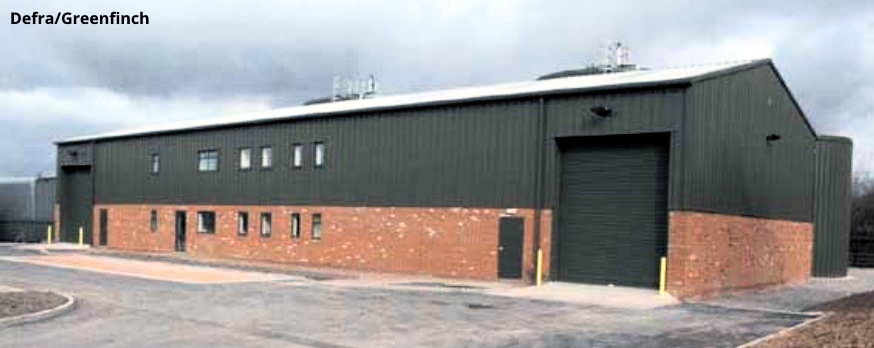On Tuesday, the Southern Planning Committee approved plans for a pyrolysis plant on the former biodigester site at Code Road (video). Only one objection was made at the meeting. That was by a Ludlow town councillor. Unfortunately, the three minutes allocated for it to make comments was consumed by an attack on the concept of the project. Phrases like “a perpetual money tree”, “Holy Grail”, “alchemists able to turn wood into gold” and “toxic money laundering”.
I am mystified as why Ludlow Town Council decided to launch a populist attack on important scheme that is part of our journey to our county becoming net zero rather than object on planning grounds.
The application received one expression of support, one public objection and an objection from Ludlow Town Council. That’s a surprisingly low level of reaction for a project described by some as controversial.
I was surprised by the town council’s apparent anti-green stance, especially after it declared a climate emergency in 2019.
Officers told the committee that emissions were a matter for the regulator, the Environment Agency, when it grants a licence. That’s not strictly true as emissions causing a neighbourhood nuisance would lead to a loss of amenity, a frequent topic discussed at planning meetings.
Town councillor Stuart Waite spoke on behalf of Ludlow Town Council. The town council has published full text of what he meant to say but as he had not timed the presentation, only half the presentation was made. (Presentations are limited to three minutes and there is a large countdown clock in the room.) Ludlow Town Council has been brought into disrepute not just by the unprofessional language of the presentation but because it has been published on its website under the title “BioChar Planning Application Representation from Ludlow Town Council”. It only made part of this representation and it is misleading to suggest otherwise. Planning is a quasi legal process and it can only consider the evidence before it, not something that was planned to be placed before the committee.
Councillor Waite began by saying he represented Ludlow Town Council and the residents of Ludlow. “Ludlow Town Council and the residents of Ludlow do not support this application.” I pointed out later that there are many people locally against the scheme and many in favour. In my view it is arrogant to say Ludlow Town Council, or anyone from it, speaks on behalf of the people of Ludlow without conducting a referendum.
Councillor Waite did say the scheme has some merits. It takes low grade biomass feedstock and converts into heat, electricity, biochar and carbon credits, all of which can be sold. Then he continued:
“I must congratulate [the pyrolysis] team on achieving the unachievable. They appear to have not only found the perpetual money tree but have found the Holy Grail, alchemists able to turn wood into gold.”
He then went on to attack the business model for the pyrolysis project:
“This model of paying to burn trees and selling carbon offsets may be likened to toxic money laundering, the optics of tech giants around the world who continue to pollute the air and do little to help the council meet its climate change commitments.”
Councillor Waite then on to challenge the effectiveness of biochar as a soil improver.
Then at last he turned to material planning considerations, saying it is next to a housing estate and there was a risk of pollution but he was out of time.
I am surprised that Ludlow Town Council authorised this presentation. The business model and carbon credits for the plant is nothing to do with planning. If someone wants to build a jellybean factory, planning officers and committees cannot consider whether it has a viable business case. What is relevant is council policy. Shropshire Council declared a climate emergency in 2019 and approved a fund for pyrolysis and biochar projects in September 2023.
The committee was solidly in favour of this project.
I tackled the issue of pollution. I have spent hours looking at the technical details of this project. Ludlow Town Council complained that sulphur dioxide could cause smells. The maximum level of SO2 emissions on Parys Road will be 20 micrograms per cubic metre. At the nearest houses it will be at most 10 micrograms for cubic metre. The human nose cannot smell SO2 below 300 micrograms for cubic metre. There will be two wet scrubbers taking almost all the pollutants. The small residual will be, as I pointed out, less than the pollutants coming out of tyres, brake pads and exhausts on the A49 immediately behind and above the Coder Road site.
This is not an unsuitable location for a plant of this nature. The site is on Ludlow Business Park, a site designated for light industrial, business and retail use. The limited extra traffic will make no difference on the already busy Parys Road.
This is a reuse of the former biodigester site. That was a pioneer in biodigestion and around 120 biogas related jobs were created around Ludlow. I have high hopes that this pyrolysis plant will also inspire other startups around Ludlow. We once led on green technology. It’s time to take that lead again. The Southern Planning Committee took the same view and after several members spoke in favour, the scheme was approved unanimously. It was the right decision.


As a precept payee of LTC I do object to people saying they are talking on my behalf when I have never been consulted on this issue.
Yet another example of this undemocratic LTC behaviour